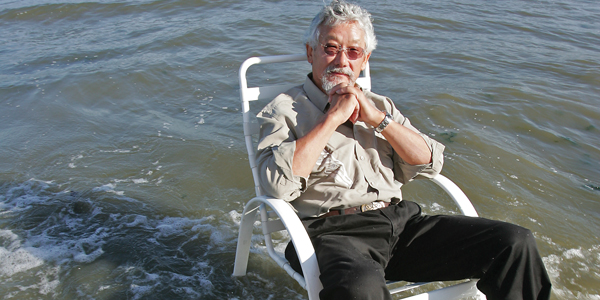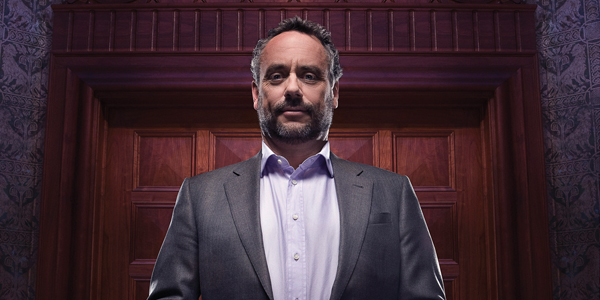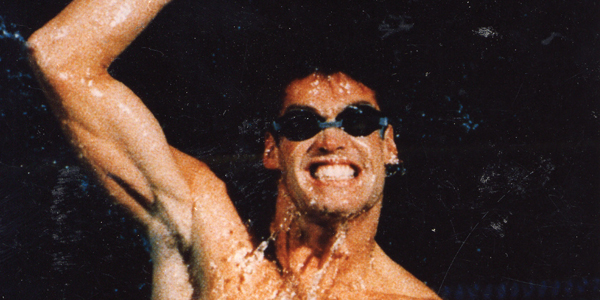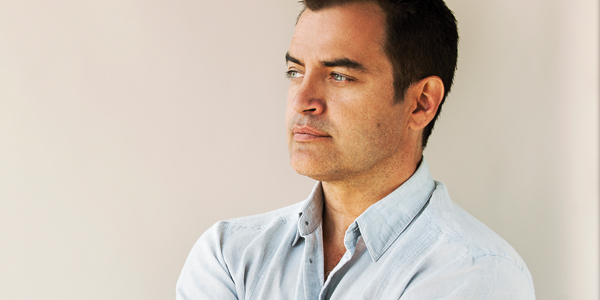I’m not surprised that a Maclean’s Magazine poll listed Dr. David Suzuki as the man most Canadian women would choose to be with on a deserted island, or that a Reader’s Digest survey sited him as the most trusted man in Canada.
I’m not surprised, because Dr. Suzuki says it like it is. He states the truth as he sees it; he’s unapologetic. He believes talk is cheap and that rhetoric and ideology amount to nothing. He lives his belief that change begins with action, and this obviously resonates with Canadians. –A CBC poll voted him “The Greatest Living Canadian”.
This celebrated gentleman is an award-winning scientist, environmentalist and broadcaster and the co-founder and chair of the David Suzuki Foundation. He holds 25 honourary degrees in Canada, the United States and Australia. He was elected to the Royal Society of Canada and a Companion of the Order of Canada, is the recipient of UNESCO’s Kalinga Prize for Science, the United Nations Environment Program Medal, and UNEPs Global 500. He has written 52 books, including 19 for children, and has won four Gemini Awards as Best Host of a Television Series for his work on “The Nature of Things”.
In the interview that follows, Dr. Suzuki suggests we need only watch people to know who they are. In watching Dr. Suzuki and the action he’s taken to communicate the truth about climate change, I see a man of passion, integrity, and tenacity. As I think about my children and my future grandchildren, I’m grateful for the work Dr. Suzuki has chosen to pursue. I’m grateful because his efforts, his action, will continue to affect future generations.
As I suggest in our conversation below, we’re never responsible for how a message is received; we’re held accountable for whether or not we’ve done everything within our power to communicate the message we feel called to share.
Dr. Suzuki has succeeded beyond all measure in sending the message; it’s up to us as to how we receive it, and whether or not we will decide to take the action required to change the current path we’re on.
Good morning David, thanks for making the time for this interview. I appreciate you. I thought I would start, as all good Canadians do, by asking how the weather is (Laughter). I mean, generally we have a chat about that. How is the weather in British Columbia?
(Laughter) Well, I guess it’s considered cold out here. I mean, there’s a light sprinkling of frost on the ground in the morning; but you guys would regard this as nice, warm weather.
(Laughter) No, not really. Our kids are pretty upset that we don’t have any snow to speak of yet. We decided to flood a rink in our backyard so all of their noses are pressed up against the windows wondering when the water will freeze.
I wanted to start with the manner in which Margaret Atwood describes you in the introduction to your book, The Legacy. She compares you to a great prophet that trudges up the mountain seeking wisdom for the community below. She writes that you have, “listened to the voice, understood that it is what it is, and brought the hard but true words back down, only to find us cavorting around shiny gods of our own devising.”
I absolutely love that passage because it accurately describes your relentless intent to keep communicating the same message; a message that has been anchored in a real love, and beauty, and respect for nature. So I’m wondering, can you tell me where that came from?
Well, over and over again, if you talk to people who are involved in various movements (but especially the environmental movement), you’ll find something in their childhood triggered their great passion – for social justice, or equity, or whatever. Certainly for me, my father (being the child of immigrants) was brought up being told, “You always have to work hard, because in the end, you’ll need money to buy a house and security and…” My dad worked very hard, but he also took time to go camping and he loved gardening. So my earliest memories from childhood are all about going hiking and camping (Laughter). And that, for me, is a critical part of who I am.
Virtually anyone you meet in science or in the environmental movement – there’s something in their childhood. Whether it was looking at the stars or some magical place that they went to in the summer – the cottage or a little creek down by their house – we have those magic places. It’s where we connect with nature.
And it sounds like on an intellectual level, it’s like a heart imprint and then it leads you into the science of it.
Yeah. As a child, you don’t think, “Oh gee, now I’m doing a scientific experiment.”
It’s pure love, you know, that connection. And this is what really concerns me about today’s society. Our children are spending the least amount of time outside of any generation in human history. And you know, the kind of image that Margaret put in the book – about cavorting with our distractions – that’s exactly what’s happening with children. They get to play with their iPods and their cell phones and their computers and, you know, they’re distracted (or at least separated) from the real world! And this is a problem because we don’t fight to protect something unless we love it! Many don’t love the out-of-doors, because we’ve created an outdoors that’s perceived as dangerous, you know – “Oh, don’t go outside, there might be speeding cars” or “Don’t go outside today, there’s a smog alert”. What the hell’s going on?!
I agree. I realize that if my children don’t interact intimately with nature, they will never see it as sacred. And, we only protect that which we consider sacred. Isn’t that really the crux of the issue?
Yeah, I know. But you know, my daughter has two responses when adults say, “Oh, well it’s this generation”. She says, “Oh, is that your excuse for not doing anything?”, and then (this is what she said when she was twelve) her second response is, “How do you expect us to be any different? You’re our teachers; we copy you.”
And yes, I’m very concerned about children, but we adults are not setting a very good example. You know? We ought to be taking them out to nature if we’re worried about that! We have to take them out into nature – they’re copying us, you know? Let them experience it first-hand. My generation and the Boomers – we’ve been partying like there’s no tomorrow. Well, there is a tomorrow and our kids are going to inherit that. So really the responsibility lies with us. We’re raising these kids.
For sure. It’s never about what you’re saying to your children, it’s about what you’re doing that shapes values.
That’s right! (Laughter) I always laugh when I see someone who smokes saying, “Now don’t do what I did – don’t smoke.” Well, what the hell?! Kids are doing what we’re doing, not what we’re saying.
(Laughter) Absolutely. My dad took me out to our hundred-acre bush every weekend of my life. That’s where we take our kids now. But when I think about that heart-based convincing – that this is worthy of protecting – I wonder if it can ever be done on a massive scale, the scale required for us to come together collectively to face a crisis. I mean, if a politician doesn’t see it or if the general public refuses to experience it, where are we left? The messages that you’ve been trying to convey are all very similar. But in my mind, that shift has to happen.
Well, it’s very discouraging when you pose it that way. We have a Prime Minister right now who is a severe asthmatic. Now, I would have thought that anyone who is asthmatic would be thinking, “Gee, do you think it’s got something to do with the air that I breathe?”
Why is it every time there’s a smog alert, hospitals are jammed with people; young people and old people having severe asthmatic crises? I mean, you would think that someone whose very health is influenced by the atmosphere, thinks in a different way, but no; he’s just as caught up in this economic thing! We’ve blinded ourselves to reality because we’re so focused on economics.
You’ve definitely pointed out for decades that economics will always trump environmental protection, but it’s really the short-sighted and the very myopic decisions that lead to those really irreversible environmental…
(Interrupting) Yeah! We use air, water, and soil as a garbage can. How can we possibly have a population that’s in good health? We can’t be healthy if we don’t have a healthy environment or a healthy planet! And we’ve used now – for over a century – we’ve used water and soil as a garbage can. And then we can’t figure out why we have continuously rising health costs. You can’t be healthy if the planet isn’t healthy – and it’s not healthy.
So the big challenge is to see that connection. Right now, we don’t see the connection. And yet every aboriginal community since the beginning of time, people have understood, “You’ve got to take care of Mother Nature, because if Mother Nature is sick, we’re going to be sick”.
And now, in this last century, we just got totally focused on the economy as if somehow the environment is a thrill, you know? “Oh yeah, if you’re well off, you can afford to worry about the environment.” This is suicidal!
And when you say, “We just don’t see it” – my feeling is more that it’s dismissed. That it’s seen as, you know, this secondary notion. We won’t really face the fact that changes need to be made; that action needs to be taken. After I read your book, my thought was that it has to be such a collective effort! So how does this happen? If we’ve both agreed that nature needs to be experienced to be valued, how is this heart imprint done collectively?
If you ask me, I’ve been a total failure…
No! You haven’t!
How can you…I have no idea. All I’ve tried to do is to provide information…
It’s the same theme I’ve been bitching over for forty years, and we’re going backwards.
And it’s the right theme. And it so saddens me that you say, “I’ve been a failure”, because I don’t believe that your life’s work is measured by whether or not that message was received. You don’t control how others perceive the world or receive a message! Everyone has the capacity to hear and make a choice. That has nothing to do with your efforts.
Okay, but you’re saying, “How do we get that message out?” And all I can say is, I’ve been doing it for forty years and it hasn’t worked. I mean, the environment comes up, yes. When times are good, the environment comes up as an issue. But if there’s an economic recession, BOOM! You’re right back down.
And you know, we always ask nature to pay the price. The economy is going down? “Oh, well we can’t afford to reduce our greenhouse gas emissions; that will cost too much.” Or, “Oh, well we’ve got to cut more trees because the forest industry is going down.” We always ask Mother Nature to pay the price for our economic downturn.
The question is not to point at you and make a judgment of “failure”, because you’re anything but that!
You are the communicator. You are the one who says, “Here are the facts; here’s the data. YOU decide what you’re going to do with it!” That doesn’t make you a failure.
The goal is to increase public awareness so that people change their actions. The reality is, I’ve done this for forty years; I’ve been a failure. Now I’m just one person. I don’t have the control – which is, “What if Suzuki wasn’t here? Where would we be?” And I suppose we wouldn’t be…I don’t know. We haven’t gotten anywhere significant. I’m a failure. You know, that’s not saying I shouldn’t have done what I did; I did the best I could. But we’ve got to say, “Suzuki’s way hasn’t worked. So how else can we do it?” And I don’t know, quite frankly. I know that young people communicate in totally different ways. It’s foreign to me. Social media – it’s like going to a different planet for me.
I have no idea what works. We’re dealing in a world now in which facts – or information – don’t determine what we do.
Our Prime Minister has cancelled the long-form census. That was all the information we got about the state of Canada and he cancelled it! He cancelled the research vessel – it goes up North in the Arctic every year to look at the impacts of climate change – because he doesn’t want that information. You know, he wants to cancel the long-gun registry because even though all of the law enforcement agencies say it works, he wants to cancel it. So we live in a world where we don’t pay attention to information anymore. It’s all about rhetoric and ideology. It’s a different world from the one I grew up in, believing that, if you give people more information, they’ll make better, more informed decisions. That’s simply not the case anymore.
And I think if we add another layer to that, certainly the information’s there, the data’s there, but then it does get skewed. You mentioned in the book, Merchants of Doubt – there can be hardcore data that is communicated, (you know, in the best possible way), and then the media has a great field day with it, skewing it (along with politicians), so that the actual data is nolonger presented.
Yup.
So can you make a comment about the book, Merchants of Doubt?
Merchants of Doubt does something we don’t do enough of: ask questions! The authors ask, “Okay, here are the people that are denying the reality of human-caused climate change – despite overwhelming scientific consensus that we are changing the chemistry of the atmosphere and that we must act very, very, quickly. What is their hidden agenda? The question we must ask is,“Where are they getting their money?”
But we don’t ask enough questions! You know, we allow doctors to speak out and we don’t pay attention to the fact that they’re being paid by the pharmaceutical industry. We have movie actors out there smoking cigarettes and we don’t ask, “Are they getting paid to do this?”
People are out there telling us how great this or that is and we should be saying, “Are you speaking the truth because you believe this? Or are you speaking it because you’re being paid?” When you track down the money, it’s clear that all of these think tanks and blog sites that are saying climate change is junk science are being supported heavily by neo-conservatives and supported by the fossil fuel industry.
I mean, if a guy gets up and tells you, “Smoking isn’t harmful to your health,” and you find out he’s being paid by the tobacco industry, do we believe he has credibility? We don’t ask that about the people who are going against the scientific community and claiming, “Climate change is junk science.” That’s what Merchants of Doubt is about. It asks us to wake up and pay attention to people’s agendas; to determine who is paying them.
What I find astounding is your infinite hope. It actually brings me to tears because I watched you at the World Accord Event and – knowing where you’ve come from, and knowing (in a sense) your belief that, “No matter what I do to communicate this message, I’m failing at it”, you still have the passion and the capacity to have conversations around environmentalism. I respect you because you have this amazing ability to hold the space for others, which allows for infinite hope. You manage to balance the reality of it.
The reality is, I’m enough of a scientist to see where all the curves are going. There are many, many of my colleagues now who are saying, “It’s too late”. And I’ve looked at what they’ve written and at their articles, and I have to agree with them. You know, if you look at the history of the way we’ve dealt with climate change, for example, I don’t see any reason to hope we’re going to be any different from the way we’re going. But I have no choice. I have grandchildren who mean everything to me.
You know, we’re all going to go extinct; we’re all going to die. The human species will go extinct like any other species; that’s a necessary part of life. Of the species that are very high on the food chain, the whales, the grizzlies, and the elephants – we’re most vulnerable to changes in our surroundings, so, you know, I know we’ll eventually be wiped out. But it really bothers me that we don’t at least try to protect the earth for our grandchildren.
I’m not worried about human beings as a species. I’m worried about my direct commitment to the future through my children and grandchildren. And my job, my obligation, my responsibility – as a parent and a grandparent – is to fight like MAD to protect something for them!
So I’ve got no choice; I just keep on working. The other thing is, I’ve been through many, many battles – and they have been very serious. A guy tried to run me off the road when I was jogging once in a logging community. We’ve had a bullet shot through our window in Vancouver. My office at UBC was broken into several times to get at my computer. So, you know, this is serious, serious stuff!
And I’m not afraid of those battles. We have to battle! But the problem is, in every battle, there’s a winner and there’s a loser. When we’re talking about the future for our children, we can’t afford to have losers any more.
So in order to be engaged and to work out how to progress in the future, we at least have to work out how to be together on some fundamental things. Your husband may be a developer, but he’s a human being and a father – that’s the level we talk at. And if he can’t agree with me that the air, the water, the soil – clean air, clean water, clean soil – are absolutely critical for our health and well-being…if he can’t agree with me on that, then there’s no hope!
So this is what I’m trying to do: to come together with anybody; I don’t care who they are – anybody, and start a conversation by agreeing with one another, “As animals, our health and well-being depends on clean air, clean water, clean soil”. Then we begin the discussion, “How do we do whatever we’re doing (be it a car mechanic or whatever) without harming those things which we all agree are the most fundamental things that we need to protect?”
I think that that’s an amazing way to view it all, because change ultimately occurs when we embrace what we have in common. Focus on unity rather than separation, and you’re constantly looking to others and saying, “Well, you’re human and I’m human, so let’s start with that”.
I know in your book, you talk about how humans are connected to everything and to everyone. And I guess that’s how you sit down at a table and focus on what you have in common, rather than what you don’t. But can you describe what you mean by the idea that, “What we do to the environment is what we do to ourselves – we are one and the same”.
Well, we’re made up of air that we breathe, water that we drink, soil through the food that we eat, and sunlight through the plants and animals that we eat to get energy. I mean, we are – as I said in the book that there’s no environment out there – we are the environment because we’re totally linked to it. So whatever we do to the air – if you dump toxic chemicals into the air, what do you think is going to happen to us? It’s going to come right back and it will be a part of us; same with the water and same with the soil. I mean, it’s kind of obvious when you think about it.
(Laughter) Probably not for some, or I think we’d have a lot of change. Anyway, when I think about your source of hope – you answered that it related to your grandchildren and your own children – what is your definition of “love”?
(Laughter) I don’t know. It’s just defined by what I feel. It’s what I feel toward my wife, and my children, and my grandchildren – who can define that? They are everything. You know, as a young man, I was amazed when I had my first child. For the first time in my life, I could understand how a person could give up their life for someone else. I could never understand that – altruism – until I had a child. And then you realize there’s something that matters far more to you than even your own life. That’s what I call my love, I guess.
And what will you consider your legacy to have been?
Well my greatest legacy to the world is my children – by far! They’re all good. They’re all decent human beings who are trying to make the world a better place. I mean, that’s my real legacy. I’ve got a body of film and books and stuff like that that I hope is a part of the discussion that will go on after me, but I hope, after my family, my Foundation is what perpetuates some of my ideas and carries them forth into the future.
Do you have advice for parents?
Well, I’d say, “Think really hard about the kind of world that we’re going to leave them.” Stop thinking about whether you can afford to get them a bike or some kind of big present for their birthday or Christmas; start thinking about the real future! What is the world going to be like when they’re adults and start having their own families?
If there was one truth that you could share with the world and they’d hear it – they’d actually HEAR it – what would it be?
Well, it’s what I say – and my daughter says it now, because her mother always said it – “You are what you do, not what you say.” I think too often, if you listen to a politician, they can rationalize all kinds of things: “This is not what it really means”, or “This is not doing this”; but just look at what you’re doing. What are YOU doing!?
Are you making the world a better place? Well don’t just say it – the words mean nothing.
I spent thirty years of my life studying fruit flies. I didn’t say to the fruit fly, “Hey! What do you think about yourself?” I just watched them; saw what they did, and then I knew what fruit flies were about. But with humans, we ask, “What do you think?” And they say all kinds of grand things and it gets confusing. Stop listening to the words. Just watch what they do. Then you know exactly.
How do they treat their kids? How do they treat their neighbours? What do they do about protecting air, water, soil? I mean, watch what people do; that tells you who they are.
Thank you for this wonderful conversation.
You’re welcome





